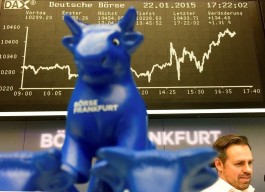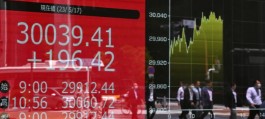British industrial output rose in September at its fastest pace this year and the trade deficit widened, official data showed on Friday.
Although the positive data for the most part showed a sharp slowdown in the construction sector, the figures in all will give Bank of England officials a sense of relief most likely, after they voted last week in favor of raising interest rates for the first time in more than a decade.
The September data does not indicate any change in initial estimates of UK economic growth of 0.4 percent in the third quarter, recording a slightly faster pace than in previous periods in 2017 but still lagging behind the growth rate in the euro zone, the National Bureau of Statistics said.
The Office of National Statistics said manufacturing output and manufacturing production rose at a monthly rate of 0.7 percent in September, the fastest pace of growth for both sectors since December, and all expectations exceeded a Reuters poll of economists.
The average forecast was reading at 0.3 percent for the production of both sectors.
Industrial output, which includes the manufacturing sector, accounts for 14 percent of Britain's total economic output.
Figures for the larger service sector are due to be released on Nov. 23.
For the third quarter as a whole, there was little change in expectations for industrial production, manufacturing sector production and the construction sector, which were offset by the preliminary economic growth estimates issued by the Bureau of Statistics.
Separately, Britain's trade deficit with the rest of the world contracted unexpectedly to 11.253 billion pounds in September from 12.350 billion pounds, the bureau said separately. Economists polled by Reuters had expected the deficit to hit 12.8 billion pounds.
The trade deficit with non-EU members has improved considerably, shrinking to £ 2.982 billion, its lowest level since May.
The National Bureau of Statistics released figures for the construction sector that were far worse than expected.
Output in September fell 1.6 percent from August and only 1.1 percent year-on-year, the weakest annual growth since March 2016.
The average forecast in a Reuters poll showed only a limited decline in sector production on a monthly basis.
Google Translate for Business:Translator ToolkitWeb
LONDON (Reuters) -






































